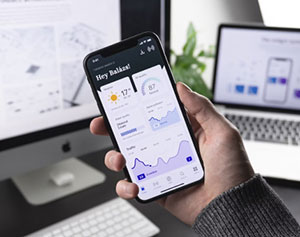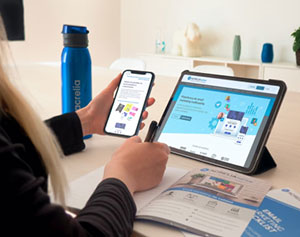News
Forever Young: 5 Ways to Optimize Your B2B Marketing Reach for Millennials and Gen Z

Business 2 Community | Date: 2021-05-12
Business and marketing leaders have been talking about Millennials and how to reach them for years—and with the oldest members of that generation turning 40 this year, they’re not the new kid on the block anymore. A 2019 TrustRadius study found that 59% of all B2B buyers are millennials, close to 30% of them are lead buyers for their organization, and as of last year, millennials are the largest B2B tech buyer group by age group. But Gen Z is joining the ranks too—a recent Inc. article shares that the generation makes up about 25% of workers today and 40% of global consumers. It’s no longer possible to ignore the sway these two groups have in the workplace.
The pandemic has also impacted the growing influence of these generations, as Pew Research indicates the pace of retirement for Baby Boomers (those born between 1946 and 1964) has accelerated in the last year. Additionally, Forrester’s 2021 B2B Buying Study shows that even as many people continue to work from home, more purchases are being made by buying groups or committees, rather than individual decision-makers. This increases the likelihood that recent grads and new hires are part of the buying process, even if they don’t hold the ultimate decision-making power yet.
As a longtime B2B marketing data provider, I’ve learned it’s important to understand the differences in how Millennials and Gen Z engage in the workplace and as potential buyers. Here are 5 traits to consider as you plan your B2B marketing:
1. They’re tech-forward and expect a seamless experience.
One of the most obvious traits about these groups is that they are extremely tech-savvy. Millennials (those born between 1981 and 1996) have grown up learning new technology as it is released, while Gen Z (those born after 1996) is the first digitally-native generation—they were born into it. As such, they expect a seamless omnichannel experience that’s people-focused and relevant to them.
2. They’re suspicious of marketing, so don’t “sell” them.
Millennials and Gen Z are both characterized as being suspicious of marketing messages and are turned off by overly promotional marketing or aggressive sales tactics. Younger generations tend to engage much later in the buying process than older generations, with buyers conducting more independent research across multiple sources. As marketers, you should provide valuable, helpful content that will encourage these prospects to engage with you on their terms.
3. They value the opinions of their peers over a brand.
Millennials and Gen Z trust the opinions of their peers over branded content or so-called experts and turn to them first when conducting buying research. In turn, don’t tell them your solution is the best, let your customers do that. Encourage customers to leave reviews on your site—or better yet, a third-party review site for greater transparency. You can do this in your campaigns by providing links to review forms or by offering incentives for a completed review.
4. They expect honesty and recognize inauthenticity.
Both Gen Z and Millennials are known for valuing honesty and having an eye for spotting inauthentic messages. In particular, Gen Z prefers frank, open communication and will speak up and speak out when a company’s words ring hollow. Marketing content to these groups doesn’t need to be ultra-formal and all business. Campaigns can be witty and casual, leveraging relevant pop culture or emoji trends, as long as the message is accurate and true to the brand.
5. They value transparency and corporate responsibility.
According to TrustRadius, Gen Z is more pragmatic, while Millennials are idealistic. But both highly value corporate responsibility and social consciousness. Gen Z especially is more diverse, more inclusive, and more committed to alignment between their values and those of their employer and companies they work with. Make your company values known and above all, be consistent and follow through.
Whether you’re a Millennial or a member of Gen Z or not, it’s important to know how these groups generally engage in the B2B buying process so you can tailor your messaging, choose your channel outreach, and alter your overall campaign strategy to be more effective. You can use a variety of tools – including identity graphs, intent data, and business contact data – to better understand the characteristics and traits of prospects in these age groups. Doing so will aid in personalization, segmentation, and your ability to resonate with and reach these important audiences.
In many ways, we’re experiencing a “changing of the guard.” Understanding generational differences can impact how you reach younger groups, communicate with them, and, ultimately, win them over as customers. As Millennials rise through the ranks and Gen Z continues to enter the workforce and demand a voice, their power and influence will only continue to grow.
DOWNLOAD YOUR FREE ebook
At OMI, we believe good things happen when you share your knowledge. That's why we're proud to educate marketers at every level - in every size and type of organization - about the basics of email marketing and the contact data that powers it.
-
The Executive's 15-Minute Guide to Building a Successful Email Marketing Database
-
A 15-Minute Guide to Fortune 2,000 Businesses and Executives
-
Five Best Practices for Using Email Marketing to Target SMBs



